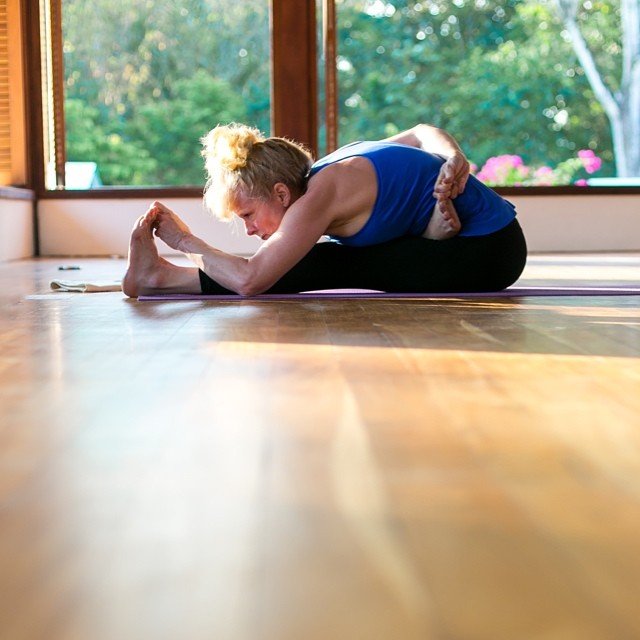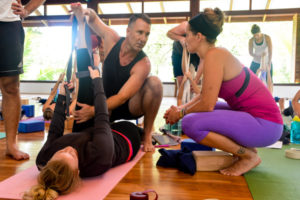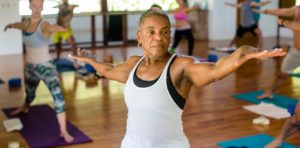I’ll admit, I am not a fan of “endings”. Most recently this was evident when my yoga teacher training concluded. Even though all the students were strangers at the beginning, by the end of the month we had become a family and it was sad when the time came for each of us to return home. The fear of endings and goodbyes has been a reoccurring theme in my life. However, I have come to realise that it’s something I should stop labelling as a “bad thing.” Instead, start looking at endings as new opportunities.
The reason why most of us fear endings is often related to habitual patterns of behaviour we develop, or sentimental attachments to material goods. In other words – a possession, a place, or person with whom we once felt a connection. This is why it’s hard to say goodbye. You may have an understanding of the meaning of habits. In case you don’t, a habit can be described as a frequent tendency or practice that is especially difficult to give up. That said, it is possible.
Don’t Worry About It Ending, It’s Just a Disguise for a New Beginning
We sometimes fail to recognise that while an ending can be a new beginning, a beginning can also be a new ending by bringing about closure. We are constantly experiencing change in our lives, whether we acknowledge it, or not. Sometimes change happens naturally, and other times we have to make a conscious decision to instil change. Either way, there’s always something better around the corner.
Sometimes it’s not immediately clear why or how change can be for the better, but in the long run it will become apparent. It’s all about making progress, pushing yourself one step further each time. For example, when relationships end, try to adjust your perspective to view the breakup as a new opportunity to meet someone else, to trust again. If a career is ending, know that is not the only career, you have the opportunity to try others. The great thing about endings is that if you didn’t like the way something worked out before, you have better insight into what you would do differently next time, and what you would like for the future.
Some Suggestions To Help You Embrace New Beginnings

Face It, Accept It, And Let It Go
This is one of the biggest challenges for many people; to accept things as they are and not for what we want them to be. It is not easy to accept something we don’t want to, it’s against our innate human nature, as it requires us to surrender and trust. You’re letting go of trying to control the uncontrollable and trusting that there is something out there that’s guiding you. So next time you start feeling those negative emotions, try to come to terms with them, face the inevitable. Observe those feelings and accept where you are in life at that exact moment and then, let it go.
Remind yourself of the ‘Face it, accept it, and let it go’ process described above every time you’re faced with negative emotions. Give yourself the space to enable the birth of something new in your life.
Coping With ‘Endings’, By Breaking Old Habits
There are some studies that suggest that it takes approximately 21 days to change a habit. While this may seem like a long time, don’t worry. You can make progress by performing some kind of positive action each day. Let’s go with the example of a relationship break-up. Try to do something every day that allows you to let go of the relationship. Examples include erasing their phone number, deleting them off social media, throwing away photographs, or taking up a new hobby. Just one progressive action a day is conducive towards breaking habits. Slowly but surely, you will turn old habits into new and positive ones.
Journal Your Future Plans And Goals
This is a great way for you to stop focusing on the past. When faced with the end of something, many of us naturally dwell on bygone days, sad that all we have to hold on to the ‘something’ is our memories. However, if you re-adjust your attitude and begin to see that ending as a new beginning, you may surprise yourself with your ability to redirect negativity into positivity. I’ve found that having a journal and writing down my personal goals really helped me heal. It motivated me to focus on the future and all the new possibilities. Endings are also a great time to re-focus on yourself. This is why I think journaling is a great idea. It’s a time for you to remember who you want to be and what you want to get out of this life.
Remember that this is all part of your journey. You will have ups and downs, and that’s okay. It’s about facing both with optimism, this will help you grow in positive ways. Some endings may hurt and be difficult to accept, but it’s not the end. It’s only the beginning. As humans, we are constantly evolving and growing. It’s good to experience these changes in our lives, each one is a step closer to your greatest self. Each one holds a message and lesson if you allow yourself to see it. Allow yourself to embrace change.
About The Author
 Born in Colombia, raised in Florida with a mind full of curiosity on spirituality and how to make the world a better place. Nicole has been practicing yoga since she was 16 years old, ever since she’s wanted to expand her yoga practice which has turned into her ultimate passion. She went to Costa Rica where her practice got more deep and now being a certified yoga instructor, still in Costa Rica, as a writer/blogger and finishing her studies on holistic health. Growing up in a household and group of friends full of support and love is what has allowed her to achieve her dreams and to continue to be where she currently is. Expressing her passions with yoga, writing, health and nature through social media wanting to spread her passion through out the world, one picture and one message at a time. (IG: @nicoletovz)(FB: Nicole Tovar)
Born in Colombia, raised in Florida with a mind full of curiosity on spirituality and how to make the world a better place. Nicole has been practicing yoga since she was 16 years old, ever since she’s wanted to expand her yoga practice which has turned into her ultimate passion. She went to Costa Rica where her practice got more deep and now being a certified yoga instructor, still in Costa Rica, as a writer/blogger and finishing her studies on holistic health. Growing up in a household and group of friends full of support and love is what has allowed her to achieve her dreams and to continue to be where she currently is. Expressing her passions with yoga, writing, health and nature through social media wanting to spread her passion through out the world, one picture and one message at a time. (IG: @nicoletovz)(FB: Nicole Tovar)






